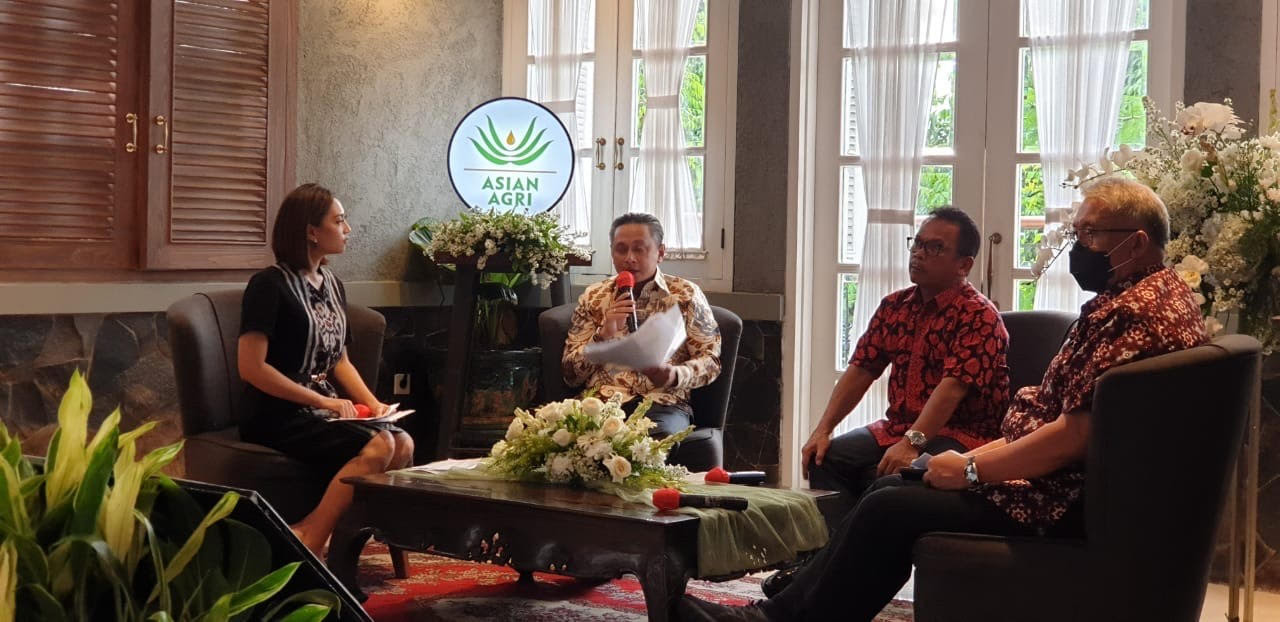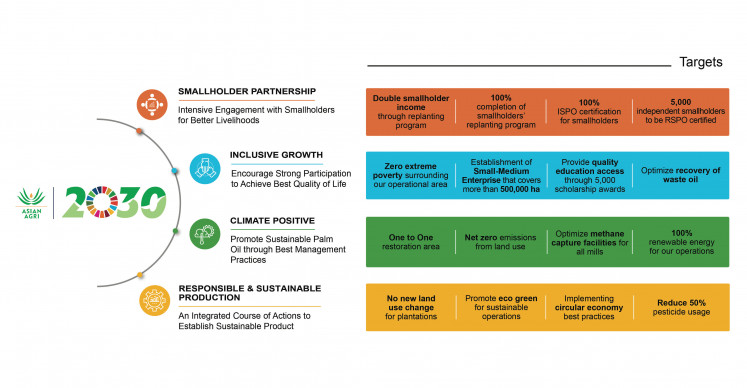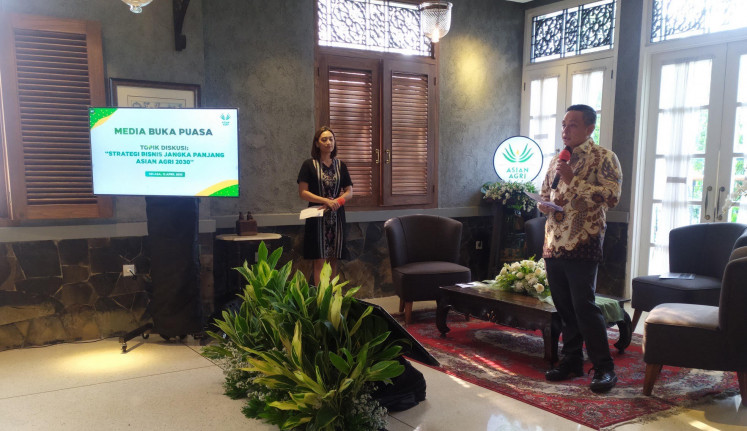Popular Reads
Top Results
Can't find what you're looking for?
View all search resultsPopular Reads
Top Results
Can't find what you're looking for?
View all search resultsSustainability key to Asian Agri 2030 commitment
Change text size
Gift Premium Articles
to Anyone
A
sian Agri, one of Indonesia’s largest palm oil producers as part of the Royal Golden Eagle (RGE) Group, has launched Asian Agri 2030, highlighting its commitment to sustainability throughout its operations.
In line with other companies under the RGE Group, Asian Agri 2030 is aligned with the values of the United Nations’ sustainable development goals (SDG) as well as the company’s own vision of improving quality of life through sustainable resource management, carried out in a series of programs and initiatives providing positive contributions.
Asian Agri Sustainability and Stakeholder Relations director Bernard A. Riedo, acting as the project leader of Asian Agri 2030, said the sustainability commitment served as a long-term business strategy for the next ten years to ensure that the company’s business was aligned with RGE’s 5C philosophy - good for the community, country, climate, customer and company.
Asian Agri 2030 itself is made up of four main pillars: smallholder partnership, inclusive growth, climate positive and responsible and sustainable production. Each of these pillars contains its own set of goals and rel="nofollow" targets, which are expected to bring a tangible impact to every aspect of the company’s operations.
. (Courtesy of Asian Agri /.)Smallholder partnership highlights the need for intensive engagement with smallholders or farmers to provide a better livelihood, with goals such as doubling smallholder income through replanting programs, 100 percent completion of smallholders’ replanting program, 100 percent Indonesia Sustainable Palm Oil (ISPO) certification for smallholders and supporting 5,000 independent smallholders to be Roundtable on Sustainable Palm Oil (RSPO) certified.
Asian Agri Operations head Omri Samosir noted that one of the main challenges in regards to smallholder partnerships was currently the high price for oil palm, which stands at double the normal price at the moment.
“We can’t control the prices as they are set by the market. However, our concept aims to make it possible for smallholders to double their income purely from productivity gains alone,” he explained.
The second pillar, inclusive growth, encourages strong participation from communities to achieve the best quality of life. It targets zero extreme poverty in the areas around Asian Agri’s operational area, the establishment of micro, small and medium sized enterprises (MSMEs) in villages covering more than 500,000 hectares, access to quality education through 5,000 scholarship awards and the optimization of waste oil recovery.
Climate positive promotes sustainable palm oil production through best management practices, such as running a one to one ratio of restoration areas, achieving net-zero emissions from land use, optimizing methane capture facilities for all mills and using 100 percent renewable energy for all of the company’s operations.
Acknowledging the plantations’ distance from PLN’s power grids, Bernard said Asian Agri aimed to be completely fossil fuel-free in electricity generation by 2030, with existing generators to be swapped with solar-powered alternatives.
“We will be working with local and international solar panel consultants as well as the Energy and Mineral Resources Ministry’s Directorate of New and Renewable Energy, as this will in turn support Indonesia’s transition to renewable energy. All our progress will be verified by an independent third party, and published transparently on our microsite,” he said.
. (Courtesy of Asian Agri /.)The last pillar, responsible and sustainable production, charts Asian Agri’s integrated course of action to establish sustainable products, aiming to achieve no new land clearings for plantations; promote environmentally friendly practices for sustainable operations; implement a circular economy through best operational practices; as well as reducing pesticide usage by 50 percent.
Omri noted that to ensure consistency in achieving sustainability, Asian Agri conducted regular audits to ensure compliance, with swift action taken should there be any deviation.
“We have been a member of RSPO since 2006, and all of our plantations and factories are certified by RSPO, ISPO and ISCC [International Sustainability and Carbon certification]. Sustainable practices are Asian Agri’s bread and butter in terms of operations,” he said.
Bayu Krisnamurthi, a professor at IPB University and former deputy trade minister, highlighted the need for resilience on top of sustainability.
“Asian Agri and RGE are commendable, as they are perhaps one of the first companies to directly translate the SDGs into their business plan. As we grapple with the COVID-19 pandemic, perhaps the most valuable lesson is that growth must be sustainable; but being sustainable itself is not enough,” he said.












